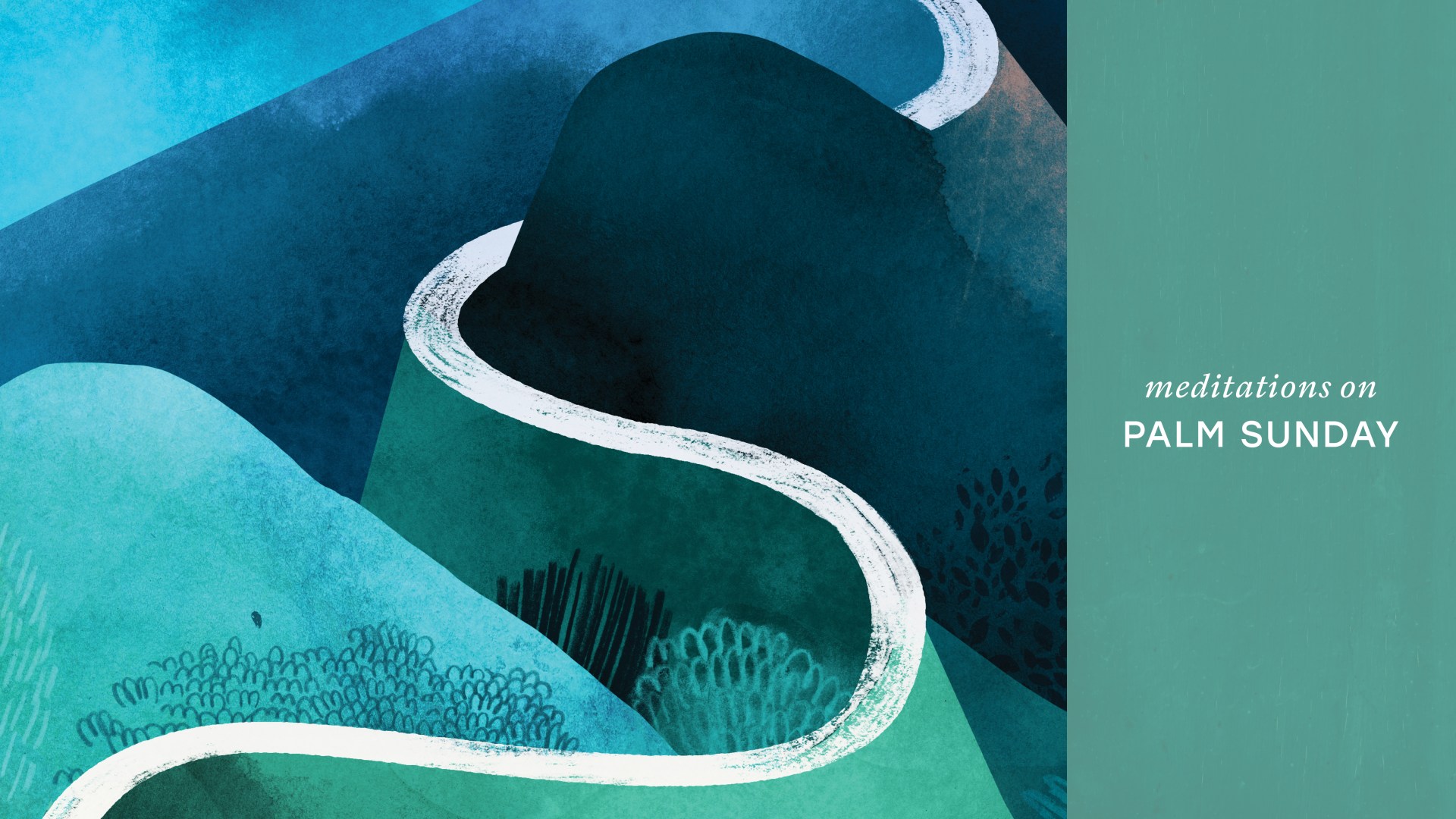Philippians 2:5–11
Palm Sunday celebrates the triumphal entry of Jesus into Jerusalem, riding on a donkey and being regaled with praise by the masses. To call it that, though, demands that we know how the story ends. Jesus was riding to his betrayal, false imprisonment, and torturous death. On the face of it, there is little that is “triumphant” about that, but this is how Jesus always works in accordance with his Father’s plan. The glory (or triumph) comes through sacrifice. Philippians 2 shows us this.
In Philippians 2:5 (ESV), believers are called to “have this mind among yourselves.” What mind? That “which is yours in Christ Jesus.” Paul doesn’t tell us what our shared mind and perspective should be like. Rather, he describes Jesus to us, because it is in him that we have this mind (perspective, thought process, values, beliefs). So let’s consider Jesus together.
Jesus set aside equality with God. He did not cling to his rightful status as over and above all. This doesn’t mean he gave up his deity but that he voluntarily became unglorified and unheavenly. He went the opposite direction of every human instinct; we cling to whatever status and power we have. (Why do you think HOA presidents, school librarians, and assistant retail managers can be such tyrants? Why do you think we so readily yell at our kids?) We won’t relinquish reputation for anything. He released his willingly.
In setting aside his rightful status, Jesus emptied himself of glory and became a servant. Serving is weakness. Serving is invisible. Serving is a job we relegate to those who are “unskilled” or considered lower in society, even if we are too genteel to say it that way. We seek glory and to be associated with the powerful. We yearn for fame, whether that is a few hours of going viral on social media or professional success. We name-drop and airbrush stories to enhance our reputations. Jesus did the opposite; he reversed the way we are to designate value, and he did so because he is the definer and giver of all true glory. In the economy of God’s kingdom that Jesus ushered in, the last shall be first and the poor in spirit are blessed.
Jesus did all this by fully, wholeheartedly, joyfully submitting to his Father’s will. It is easy to think, because of our own sinful limitations, that God’s plan was foisted on Jesus or that Jesus drudgingly stepped into the role of rescuing servant in order to save humanity. That is not the case at all. From before the world began, for all eternity, Jesus and the Father have been of one mind and heart. When Jesus set aside his status and glory and power, He did so “for the joy set before him” (Heb. 12:2). He did so in order to glorify the Father (John 17:4). And he did so in order to save sinners who could not save themselves (Rom. 5:8).
Here we see the beautiful backwardness of God’s kingdom—or maybe it’s more true to say that we see how God’s kingdom upends our broken backwardness. Through humility, Jesus was glorified. Because he set aside status, the Father put him on the throne. Because he laid down his life for the world, one day the world will bow before him in reverence. Under the rule of Jesus, humility is the pathway to true glory. The triumphal entry exemplifies this. Jesus rode to the lowest, most humiliating point in all of human history, and through that came the triumph over sin and death.
Now we return to the question of “What mind?” What mind are we to have among ourselves? That which is so fixated on Jesus that we value what he values, love what he loves, and pursues what he pursued. That which is as submitted to our heavenly Father’s will as his was. That which single-mindedly pursues the Father’s glory as he did. That which takes joy in the glorification to come as we submit to the Father and follow Jesus.
Barnabas Piper serves as a pastor at Immanuel Church in Nashville. He is the author of The Pastor’s Kid and Belong. He is married to his wife, Lauren, and has three children.













